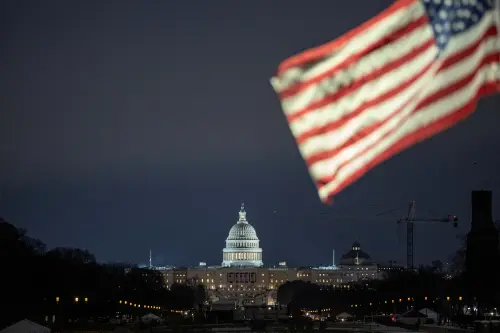Since resuming office last month, U.S. President Donald Trump has implemented multiple tariffs and issued frequent threats to levy charges on imported goods. These range from broad measures, such as universal tariffs on foreign goods, to targeted actions aiming at specific sectors, regions, or countries to compel compliance with his policy demands.
Trump's evolving threats have created uncertainty for other countries and businesses about his next steps. His trade-related actions and threats encompass a phased introduction of universal tariffs on all U.S. imports. Recently, he tasked his economic team with devising strategies to address taxes on U.S. imports by other countries and counteract non-tariff barriers.
In the past, tariffs were a significant source of U.S. tax revenue, but in recent years have diminished. Economists warn that Trump's policies may lead to inflation, as businesses that import goods are likely to pass on additional costs to consumers. This could trigger retaliatory tariffs from global trading partners, potentially sparking a global trade conflict and raising uncertainty for businesses and investors.
Trump's proposed tariffs target several major trading partners, including Mexico, Canada, China, Europe, Russia, India, and the broader BRICS nations. Trump has also announced intentions to impose tariffs on Colombian goods, metals used in various industries, semiconductor chips, pharmaceuticals, and automobiles.
For instance, Trump's administration announced 25% tariffs on goods from Colombia but reached an agreement later. Additionally, on Sunday, Trump indicated plans to impose tariffs on metals, semiconductors, pharmaceuticals, and automobiles in the near future.
Recent discussions between Trump and leaders of various nations have revolved around trade, tariffs, and potential concessions to ease tensions. These developments have sent ripples through global markets and raised concerns about the future of international trade relations.
